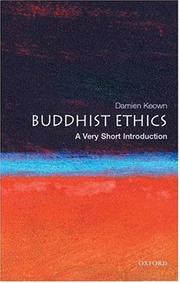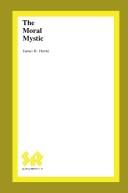| Listing 1 - 10 of 235 | << page >> |
Sort by
|
Book
ISBN: 3657784381 9783657784387 9783506784384 Year: 2016 Publisher: Paderborn : Verlag Ferdinand Schöningh,
Abstract | Keywords | Export | Availability | Bookmark
 Loading...
Loading...Choose an application
- Reference Manager
- EndNote
- RefWorks (Direct export to RefWorks)
Das spezifische Profil der katholischen Moraltheologie ist angesiedelt im Spannungsfeld der Schlüsselbegriffe Gerechtigkeit und Liebe einerseits sowie Zeit und Ewigkeit andererseits. Das ist die Grundlage für ein gelingendes Leben aus der Kraft des Glaubens an den dreifaltigen Gott. Moraltheologie wird verstanden als umgewandte, nicht als angewandte Dogmatik. Die Aussagen im Glaubensbekenntnis können also nicht einfach auf den Alltag des Christen angewandt werden, sie bedürfen der Deutung und Aufschlüsselung. Leitend ist die Frage: Was bedeutet der Glaube an den dreifaltigen Gott für das Leben und Handeln der Menschen? In 13 Kapiteln werden basislegende Begriffe des Fachs aus unterschiedlichen Perspektiven – historischer Kontext, spirituelle Stationen – beleuchtet, um so Anforderungen einer modernen Moraltheologie aufzuzeigen.
Religious ethics. --- Eternity. --- Religious ethics --- Eternity

ISBN: 128075298X 0191516937 1429459662 9780191516931 9780192804570 019280457X 9786610752980 6610752982 9781429459662 019280457X Year: 2005 Publisher: Oxford ; New York : Oxford University Press,
Abstract | Keywords | Export | Availability | Bookmark
 Loading...
Loading...Choose an application
- Reference Manager
- EndNote
- RefWorks (Direct export to RefWorks)
Recent interest in Buddhist thought has grown dramatically, and with it the desire to understand contemporary ethics from a Buddhist perspective. Looking at issues such as animal rights the environment, abortion and cloning, the author explains mainstream Buddhist teachings on a wide range of debates.
Book
ISBN: 9811684677 9811684685 9789811684685 Year: 2022 Publisher: Singapore Springer Nature Singapore :Imprint: Springer
Abstract | Keywords | Export | Availability | Bookmark
 Loading...
Loading...Choose an application
- Reference Manager
- EndNote
- RefWorks (Direct export to RefWorks)
Book
ISBN: 9783657794584 9783506794581 3657794581 Year: 2024 Publisher: Boston : BRILL,
Abstract | Keywords | Export | Availability | Bookmark
 Loading...
Loading...Choose an application
- Reference Manager
- EndNote
- RefWorks (Direct export to RefWorks)
This book explores theological ethics in the context of global migration, focusing on the right to have rights. It delves into human rights within theological ethics, highlighting the dignity and empowerment of vulnerable subjects. The text examines the changes in human rights perspectives from modern times and addresses issues such as migration and oppression. It aims to offer a critical understanding of human rights and their application in theological discourse, intended for scholars and students in theology and social ethics.
Book
ISBN: 1438444605 9781438444604 1438444591 9781438444598 9781438444604 Year: 2012 Publisher: Albany : State University of New York Press,
Abstract | Keywords | Export | Availability | Bookmark
 Loading...
Loading...Choose an application
- Reference Manager
- EndNote
- RefWorks (Direct export to RefWorks)
Diversity matters. Whether in the context of ecosystems, education, the workplace, or politics, diversity is now recognized as a fact and as something to be positively affirmed. But what is the value of diversity? What explains its increasing significance? Valuing Diversity is a groundbreaking response to these questions and to the contemporary global dynamics that make them so salient.Peter D. Hershock examines the changes of the last century to show how the successes of Western-style modernity and industrially-powered markets have, ironically, coupled progressive integration and interdependence with the proliferation of political, economic, social, cultural, and environmental differences. Global predicaments like climate change and persistent wealth inequalities compel recognition that we are in the midst of an era-defining shift from the primacy of the technical to that of the ethical. Yet, neither modern liberalism nor its postmodern critiques have offered the resources needed to address such challenges.Making use of Buddhist and ecological insights, Valuing Diversity develops a qualitatively rich conception of diversity as an emerging value and global relational commons, forwarding an ethics of interdependence and responsive virtuosity that opens prospects for a paradigm shift in our pursuits of equity, freedom, and democratic justice.
Difference (Philosophy) --- Buddhist ethics. --- Philosophy --- Religious ethics
Book
ISBN: 9629969106 9789629969103 Year: 2011 Publisher: Hong Kong : Baltimore, Md. : The Chinese University Press, Project MUSE,
Abstract | Keywords | Export | Availability | Bookmark
 Loading...
Loading...Choose an application
- Reference Manager
- EndNote
- RefWorks (Direct export to RefWorks)
Confucianism. --- Confucian ethics. --- Religious ethics --- Religions

ISBN: 0889207690 9780889207691 0889201498 9780889201491 Year: 1983 Publisher: Waterloo, Ont., Canada : Published for the Canadian Corporation for Studies in Religion by Wilfrid Laurier University Press,
Abstract | Keywords | Export | Availability | Bookmark
 Loading...
Loading...Choose an application
- Reference Manager
- EndNote
- RefWorks (Direct export to RefWorks)
Mysticism is condemned as often as it is praised. Much of the condemnation comes from mysticism's apparent disregard of morality and ethics. For mystics, the experience of ""union"" transcends all moral concern. In this careful examination of the works of such practitioners or examiners of mysticism as Paul Tillich, Thomas Merton, Evelyn Underhill, and Martin Buber, the author posits a spectrum of uneasy relationships between mysticism and morality. Horne explores the polarities of apophatic (imageless) and imaginative mysticism, the contemplative and the active life, and morality and amor
Book
ISBN: 1350050229 1350050245 9781350050235 1350050237 9781350050228 9781350050211 1350050210 9781350050242 Year: 2018 Publisher: New York : Bloomsbury,
Abstract | Keywords | Export | Availability | Bookmark
 Loading...
Loading...Choose an application
- Reference Manager
- EndNote
- RefWorks (Direct export to RefWorks)
"Ludwig Wittgenstein was an outstanding 20th-century philosopher whose influence has reverberated throughout not only philosophy but also numerous other areas of inquiry, including theology and the study of religions. Exemplifying how Wittgenstein's thought can be engaged with both sympathetically and critically, Wittgenstein, Religion and Ethics pushes forward our thinking about religion and ethics and their place in the modern world. Bringing Wittgenstein's ideas into productive dialogue with several other important thinkers, including Elizabeth Anscombe, St Thomas Aquinas, Georg Cantor, S ren Kierkegaard and George Orwell, this collection fosters a highly informative picture of how different strands of contemporary and historical thought intersect and bear upon one another. Chapters are written by leading scholars in the field and tackle current debates concerning religious and ethical matters, with particular attention to the nature of religious language. This is a substantial contribution to religion and ethics, demonstrating the significance of Wittgenstein's ideas for these and related subjects."--Bloomsbury Publishing.
Religion. --- Ethics. --- Religious ethics. --- Wittgenstein, Ludwig,
Book
ISBN: 1928314597 9781928314592 9781928314585 1928314589 Year: 2019 Publisher: [Place of publication not identified] : African Sun Media,
Abstract | Keywords | Export | Availability | Bookmark
 Loading...
Loading...Choose an application
- Reference Manager
- EndNote
- RefWorks (Direct export to RefWorks)
A shared interest of law and religion is the advancement of human flourishing, yet there is no common understanding of what it means for humans to flourish and the means by which to attain a flourishing life. The concept of human flourishing is especially important for Africa, where community and national development compete with forces of conflict and scarce resources. In the broadest sense, the concept of human flourishing focuses our attention on having a comprehensively good or worthwhile life, but various religious and legal traditions suggest different norms for measuring the quality of life and designing the institutional structures that could best facilitate and preserve it.
Book
ISBN: 1280128763 9786613532640 0826106641 9780826106643 9781280128769 6613532649 0826106633 9780826106636 Year: 2012 Publisher: New York : Springer,
Abstract | Keywords | Export | Availability | Bookmark
 Loading...
Loading...Choose an application
- Reference Manager
- EndNote
- RefWorks (Direct export to RefWorks)
"The Reverend Dr. Marsha Fowler and her colleagues have written a landmark book that will change and enlighten the discourse on religion and spirituality in nursing. The authors address the awkward silence on religion in nursing theory and education and with insightful scholarship move beyond the current level of knowledge and limited discourse on religion in nursing theory, education and practice. This book is path-breaking in that [it] gives many new ways to think about the relationships between ethics, health, caregiving, moral imagination, religion and spirituality.". From the Foreword by Patricia Benner, PhD, RN, FAAN. Professor Emerita of Nursing. Department of Social and Behavioral Sciences and Nursing. University of California, San Francisco. The past 25 years have witnessed an escalating discussion on the role of spirituality within health care. This scholarly volume is rooted in the belief that not only is religion integral to nursing care, but the religious beliefs of both nurse and patient can significantly influence care and its outcome. It offers an in-depth analysis of the ways in which religion influences the discipline of nursing, its practitioners, and treatment outcomes. Through the contributions of an international cadre of nurse scholars representing the world's major religious traditions, the book explores how theories, history and theologies shape the discipline, bioethical decision making, and the perspective of the nurse or patient who embraces a particular religion. It examines the commonalities between the values and thinking of nursing and religion and identifies basic domains in which additional research is necessary. The authors believe that ultimately, scholarly dialogue on the relationship between religion and nursing will foster and enhance nursing practice that is ethical and respectful of personal values. Key Features:.: Offers in-depth analysis of how religion influences the discipline of nursing, its practitioners, and treatment outcomes; Uses critical theories to explore the intersections of religion, ethics, culture, health, gender, power, and health policy; Includes an overview of all major world religions; Focuses on the implications of religion for nursing practice rather than nursing interventions; Designed for graduate and upper-level undergraduate students, nurse academicians and clinicians.
Nursing --- Nursing ethics. --- Religious ethics. --- Religious aspects.
| Listing 1 - 10 of 235 | << page >> |
Sort by
|

 Search
Search Feedback
Feedback About UniCat
About UniCat  Help
Help News
News